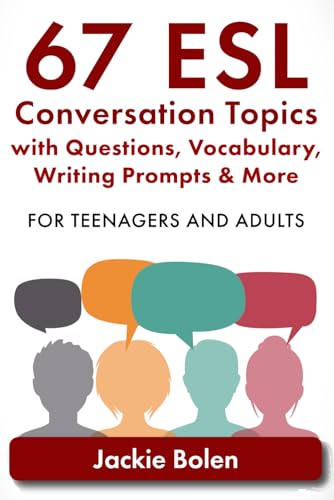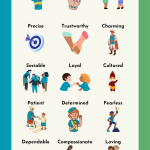If you’re looking for some of the best zero conditional games and activities, along with lesson plans, and worksheets, then you’re in the right place. Keep on reading!

Zero conditional activities and games
Zero Conditional Activities
Let’s get into the best zero conditional games and activities to try out with your students.
#1: Guess the Feeling Word
This is a simple guessing game that students play in pairs or small groups. The first student has to give some hints about a word that they’re thinking about. For example,
- If I feel this way, I might sweat.
- If I feel this way, I’m probably grumpy.
The answer is hot.
Here’s another example,
- If I feel this way, I might yell.
- My mom feels this way if I fail a test.
The answer is angry.
#2: Concentration Zero Conditional Game
Try out this fun game that works really well for the zero conditional. Make up cards with matching clauses to form a complete sentences. Then, students mix them up face down on their desks. If it’s a match and the cards make a coherent sentence, the student can keep the two cards and gets a point. If not, they return the cards to their sports and the next student goes.
This is a nice game for all ages! Try it out for yourself.
Concentration ESL Memory Game.
#3: Running Dictation
In this case, find, or write a conversation between two people talking about some rules for a certain situation. For example, eating lunch at work, or eating in a nice restaurant.
#4: The Flyswatter Game
If you want to create some fun and excitement in your class, almost nothing does it like the flyswatter game! For this grammar concept, fill up the whiteboard with a bunch of clauses. Then, say the other half of a clause, and students have to slap the correct one.
For example, you might write, “if I don’t do my homework.” Then, you could say, “my teacher gets angry.” Learn more here:
#5: Make it Personal
A simple activity for teaching the second conditional if to have some sentence starters and then students can fill them in. For example,
- If I’m too hot,
- If I’m running late,
- If I wake up late,
- If I cook dinner,
- If I go to bed early,
- If I drink too much,
#6: Dictogloss
Try out this versatile listening activity that can be used for almost any topic, vocabulary set, or grammar point, including this one. Find, or write a passage that makes frequent use of the zero conditional and follow the simple steps here:
#7: Zero Conditional ESL Speaking Lesson
It’s easy to plan your own speaking lesson to cover just about anything, including this topic! Find out how right here:
#8: Do you Agree?
Make up some starter sentences along the themes of politics, do & don’ts, etc. Basically, anything that people may have different opinions about. For example,
- If people are kissing in public,
- If you blow your nose at the dinner table,
- If politicians are corrupt,
Students have to fill in the rest of the statement and then discuss their answers with a partner.
#9: Etiquette Rules Presentation
Put students into small groups and they can each choose a different situation. For example, at a coffee shop, bar, in class, first date, on a bus, etc. Then, they have to do a short presentation about etiquette rules for those situations using the 0 conditional. For example, at a coffee shop:
- If you hang out in a coffee shop, you need to buy something.
- If you’re with friends, don’t talk too loudly.
#10: Sports Guessing Game
In small groups, students can pick a sport that most people don’t know a lot about. For example, in Asia, people probably don’t know a lot about ice hockey, whereas in North America, people aren’t that familiar with cricket.
Then, students have to write down five rules using the second conditional, except one of them in false. For hockey, students could write:
- If the puck goes in the net, you get a goal.
- If you score on yourself, it doesn’t count.
- If you hit somebody from behind, you get a penalty.
- If you have too many players on the ice, you get a penalty as well.
- In the NHL, if you fight, you get a 5-minute penalty.
Students read out their statements and the rest of the class has to guess which one is false. In this case, it’s the second one.
#11: Whiteboard Race
Try out this simple writing activity with your smaller classes. Say the first half of a zero conditional statement, and students have to race to write something that works for the second half.
#12: What’s the Game?
Bring in a deck of cards. Almost everyone will be familiar with cards, and has probably played some card games before.
Put students into small groups, and they can make a simple card game, using the zero conditional for the game instructions. Each team can do a short presentation and the class can vote on which game they’d like to play. Try it out if you have time!
#13: How Does It Work?
Show students a picture of a machine that they may not entirely be familiar with. In pairs or small groups, they can come up with some instructions. For example,
- If you flip the switch up, the machine turns on.
- If you push the red button, it will turn off.
- If you turn the dial, the speed will increase or decrease.
#14: Zero Conditional ESL Reading Lesson
It’s actually not so difficult to plan your own TEFL reading lesson by following these simple steps. Check out all the details here:
#15: Dictation
I like to use this simple activity to find out how much students actually know. Nothing makes it more clear than having to write it down! In this case, I say the first clause, students write it down in their notebooks, and then write something for the second part. For example,
- If my dad is angry at me, ______.
#16: Real-Life Examples
Have students brainstorm and share real-life examples of cause-and-effect relationships using the zero conditional. For example, “If you heat water, it boils.” This activity helps them understand how the zero conditional expresses natural consequences.
#17: Picture Prompts
Provide students with a series of pictures depicting different situations. Ask them to create zero conditional sentences based on what they see. For instance, show a picture of a rainy day and have students say, “If it rains, I take an umbrella.”
#18: Role Plays
Divide the class into pairs or small groups and assign each group a specific scenario. Each group should create a short dialogue using the zero conditional. Encourage them to use real-life situations or hypothetical scenarios. Afterward, groups can perform their role plays for the class.
#19: Song Lyrics Analysis
Select a song with lyrics that contain zero conditional sentences. Provide the lyrics to the students and ask them to identify and underline the zero conditional sentences. Then, discuss the meaning and context of the sentences in the song.
#20: Board Game
Create a board game where students must form zero conditional sentences based on the squares they land on. Each square can have a prompt or a situation that requires a zero conditional response. Students practice forming and using the structure as they play.
#21: Error Correction
Provide students with a set of sentences containing errors in the zero conditional structure. Ask them to identify and correct the mistakes. This activity helps reinforce the correct usage of the zero conditional and strengthens students’ understanding of the grammar point.
More Activities for Conditionals
If you’re looking for some more ideas, have a look here:
3rd Conditional Games and Activities
Zero Conditional Worksheets
If you’re a teacher, then you already know how much time it can save to use things that other teachers have created. Here are some of the top options for zero conditional worksheets:

Zero conditional games and activities
ESL Lesson Plans for the Zero Conditional
Here are some of the best complete lesson plans for teaching this important grammar concept:
More Ideas for Teaching English
- Bolen, Jackie (Author)
- English (Publication Language)
- 209 Pages - 07/13/2020 (Publication Date) - Independently published (Publisher)
If you’re an English teacher who wants to make their life easier, then consider picking up this book: 67 ESL Conversation Topics. There are ready-made lessons plans on a variety of topics that students and teachers alike will find engaging and interesting.
Pick up a copy of the book today, and get ready for better English lessons tomorrow:
FAQs
Here are some of the most common questions that people have.
What is zero conditional and example?
The zero conditional is used to talk about facts and things that are true. For example, “When it rains, the roads get wet.”
What are three examples of the zero conditional?
Here are three examples of the zero conditional:
- If you don’t wear enough clothes when it’s cold outside, you might be cold.
- If you eat too many snacks, you won’t be hungry at dinner.
- If public transportation is efficient enough, some people will stop driving cars.
What are the four types of conditional sentences?
There are four types of conditional sentences: zero, 1st, 2nd, and third. They are used to describe different situations.
What are some common mistakes ESL learners make when using the zero conditional?
Common mistakes include using the future tense after “if” (e.g., “If it will rain, I will bring an umbrella”) or using the wrong verb form in the main clause (e.g., “If it rains, I bring an umbrella”). It is essential to address these errors and provide corrective feedback.
How can I practice the zero conditional with ESL learners?
Practice the zero conditional through various activities, such as sentence completion exercises, role plays, discussion prompts, and real-life examples. Encourage students to form their own sentences using the structure and engage in meaningful conversations.
Are there any specific teaching techniques or strategies for teaching the zero conditional?
Use contextualized examples, visuals, and real-life situations to help students understand and remember the zero conditional. Encourage practice through interactive activities and provide opportunities for students to produce their own sentences.
How can I assess ESL learners’ understanding of the zero conditional?
Assess students’ understanding of the zero conditional through formative assessments such as sentence completion tasks, role plays, or problem-solving activities. Additionally, observe their use of the structure in conversations or written assignments.
Are there any common misconceptions or challenges for ESL learners when learning the 0 conditional?
ESL learners may mistakenly apply the 0 conditional in situations that require other conditional forms, such as the first or second conditional. They may also struggle with understanding the distinction between general truths and specific situations. Addressing these challenges through clear explanations and practice can help clarify the concept.
The Zero Conditional: Join the Conversation
Do you have any zero conditional games or activities that you’d like to add to the list? Leave a comment and let us know. We’d love to hear from you.
Last update on 2022-07-17 / Affiliate links / Images from Amazon Product Advertising API







